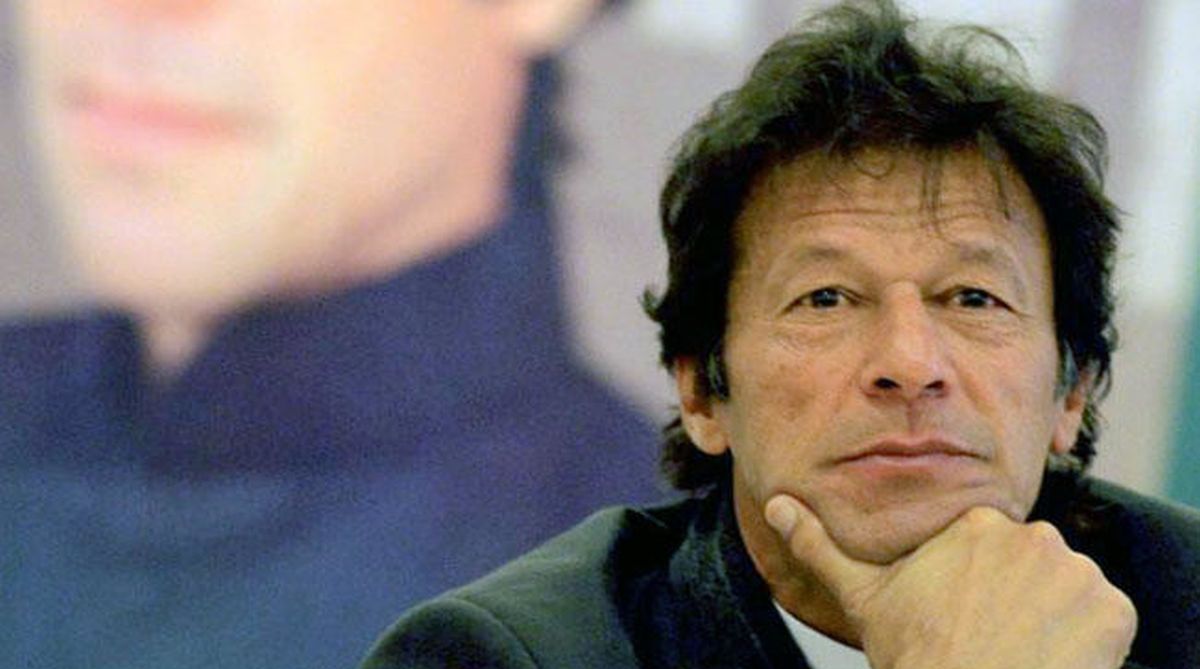Still unexplained
The hunt for the origins of Covid-19 has for the past four years been a tangled web of politics, power struggles, and international finger-pointing.
In the next two weeks Prime Minister Khan will visit three ‘friendly countries’ where he is likely to seek monetary assistance, the report said, days after Islamabad formally sought a bailout from the International Monetary Fund (IMF).

Imran Khan (File Photo: AFP)
Pakistan Prime Minister Imran Khan will visit three ‘friendly countries’ — Saudi Arabia, Malaysia and China — where he is likely to seek monetary help of up to USD 13 billion for his cash-strapped government, a media report said on Monday.
Quoting sources, the Dawn newspaper reported that Khan would leave for Saudi Arabia on Monday and embark on a two-day visit to Malaysia on October 28 and to China early on November 3.
In the next two weeks Prime Minister Khan will visit three ‘friendly countries’ where he is likely to seek monetary assistance, the report said, days after Islamabad formally sought a bailout from the International Monetary Fund (IMF).
Advertisement
A member of the Khan’s Cabinet said the prime minister was likely to take up the issue of financial aid with his hosts in the three friendly countries because Pakistan badly needed assistance to ease the current economic crisis.
He said the government immediately needed USD 12 billion to USD 13 billion to ease the financial crisis and retire foreign debt.
“We need USD 8 billion to retire foreign debt and USD 5 billion to run the affairs of government,” the unnamed minister said.
“If we get good monetary support from our friendly countries then there is a possibility that we will not require support of the IMF,” he added.
Pakistan formally approached the IMF on October 12 for a bailout to tide over the economic crisis.
But some tough talking by IMF Managing Director Christine Lagarde and the US on Pakistan’s bailout plan, demanding absolute transparency on the country’s debts, including those owned by China under the China-Pakistan Economic Corridor (CPEC) projects, has upset Islamabad.
Pakistan Finance Minister Asad Umar last week said the government don’t want to fully rely on the IMF. He said the loan programme with the IMF is almost final, but the government will have to see that the IMF does not place any “undoable conditions” for Pakistan in return.
According to Pakistan’s Foreign Office, Prime Minister Khan is going to Riyadh on the special invitation of King Salman bin Abdel Aziz to participate in the Future Investment Initiative conference being held there from Tuesday to Thursday.
Interestingly, some countries are boycotting the conference in reaction to the killing of a dissident Saudi journalist, Jamal Khashoggi, at the kingdom’s consulate in Istanbul, Turkey.
The Cabinet minister said the prime minister would visit Malaysia for two days (Oct 28 and 29) and would meet his Malaysian counterpart Mahathir Mohamad and other government functionaries, the report said.
In his recent telephonic conversation with Mahathir, Khan had expressed his desire to learn from Malaysia’s experiences.
Khan would embark on an official visit to China on November 3 during which there would be discussions in detail on Pakistan-China strategic ties, the report said.
During his meetings in the friendly country, Khan would inform the Chinese leadership that his government wanted to bring about a significant shift in the projects falling under the purview of the CPEC, said the sources.
Under the previous government there was an emphasis on infrastructure schemes, but the current government wanted projects involving agriculture, job creation and foreign investment take centre stage, the report said.
The USD 60 billion CPEC is the flagship venture of the Belt and Road Initiative (BRI), a pet project of Chinese President Xi Jinping aimed at enhancing Beijing’s influence around the world through China-funded infrastructure projects.
Cash-strapped Pakistan has already announced plans to cut a USD 8.2 billion railway project between the Karachi and Peshawar, the biggest under the CPEC, by about USD 2 billion to reduce the debt burden.
The Trump administration has been critical of China’s Belt and Road Initiative, saying that it has saddled some developing countries with debts they cannot afford to repay.
Advertisement